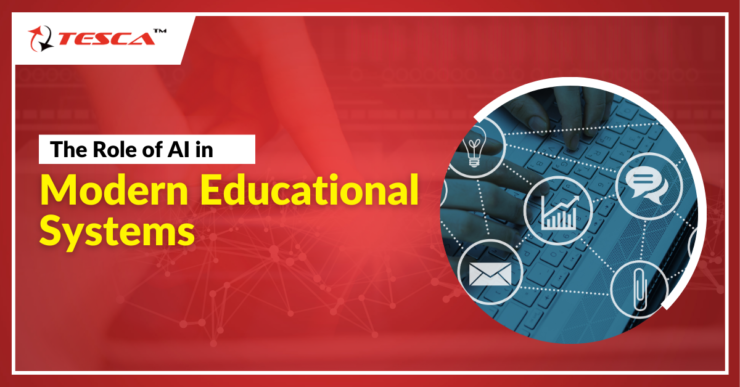Table of Contents
Embracing AI in Education
In recent years, Artificial Intelligence (AI) has revolutionized numerous industries, and the field of education is no exception. With advancements in AI technology, educational systems worldwide are experiencing transformative changes that promise to enhance the learning experience for students and educators alike.
In this article, we will delve into the multifaceted role of AI in modern educational systems and explore how this innovative technology is reshaping the landscape of learning.
1. Understanding AI in Education
AI, in the context of education, refers to the use of intelligent machines and algorithms to perform tasks that traditionally required human intelligence.
From personalized learning to automated grading systems, AI is now capable of assisting educators in various aspects of their teaching journey, facilitating a more efficient and effective learning process.
1.1 The Emergence of AI in Educational Settings
The integration of AI into educational settings is the result of the rapid progress made in natural language processing, machine learning, and data analytics.
This has opened up new possibilities for creating adaptive learning environments that cater to the individual needs of students.
1.2 Benefits of AI Adoption in Education
AI’s adoption offers numerous advantages for both students and educators. By harnessing AI-powered tools, educational institutions can optimize resource allocation, streamline administrative tasks, and elevate the overall learning experience.
2. Personalized Learning through AI
One of the most significant contributions of AI in education is its ability to deliver personalized learning experiences.
2.1 Tailoring Educational Content
AI algorithms analyze data from individual students to understand their learning preferences and patterns. With this insight, the system can tailor educational content to suit each student’s pace, style, and proficiency level, making learning more engaging and effective.
2.2 Intelligent Tutoring Systems (ITS)
Intelligent Tutoring Systems leverage AI to provide real-time feedback and guidance to students. These virtual tutors can identify areas where students are struggling and offer targeted support, enhancing the learning process and encouraging self-paced learning.
Read Also: Importance of Power Electronics Lab Trainer Tools
3. Revolutionizing Classroom Instruction
AI is transforming the traditional classroom by empowering educators with innovative tools and resources.
3.1 AI-Powered Teaching Assistants
AI-driven teaching assistants can aid educators by automating routine tasks, such as grading assignments and managing administrative duties. This allows teachers to focus on more critical aspects of teaching, like lesson planning and student engagement.
3.2 Smart Content Creation
AI is revolutionizing content creation with the ability to generate interactive and dynamic learning materials. These resources can adapt to the student’s needs, ensuring that they receive relevant and up-to-date information.
4. Enhancing Educational Assessment
AI has the potential to reshape the assessment process, making it more accurate and insightful.
4.1 Automated Grading Systems
With AI-powered automated grading systems, educators can save time on assessing assignments and exams. These systems can evaluate student responses and provide instant feedback, fostering a continuous learning cycle.
4.2 Data-Driven Performance Analysis
AI can analyze vast amounts of educational data to identify trends and patterns related to student performance. Educators can use this information to tailor their teaching methods and implement targeted interventions for struggling students.
Read Also: An Extensive Guide on Digital Trainer kit Educational Tool
5. Ethical Considerations in AI-Driven Education
While AI presents numerous opportunities for educational improvement, it also raises ethical concerns that must be addressed.
5.1 Data Privacy and Security
As AI systems gather and analyze student data, ensuring data privacy and security becomes paramount. Educational institutions must implement robust measures to protect sensitive information and maintain student confidentiality.
5.2 Bias and Fairness
AI algorithms can inadvertently perpetuate biases present in the data they are trained on. Educators and developers must actively work to mitigate bias in AI systems to ensure fair and equitable learning opportunities for all students.
6. The Future of AI in Education
The future of AI in education is filled with possibilities and potential for even greater advancements.
6.1 AI in Lifelong Learning
AI’s influence in education extends beyond traditional classrooms. Lifelong learners can benefit from AI-powered platforms that offer personalized learning paths and access to a vast repository of knowledge.
6.2 Collaborative Learning with AI
AI can facilitate collaborative learning experiences by connecting students with peers worldwide and encouraging cross-cultural interactions.
Conclusion: Embracing the Role of AI in Modern Educational Systems
As AI continues to shape modern educational systems, the potential for positive transformation is immense. From personalized learning experiences to revolutionizing classroom instruction, AI is proving to be a valuable asset in enhancing education.
However, the integration of AI in education also brings ethical considerations. Ensuring data privacy, and fairness in AI algorithms, and maintaining a balance between AI and human interaction is essential.
In preparing students for an AI-driven future, educators must emphasize critical thinking, creativity, and emotional intelligence alongside academic knowledge.
Tesca Global Lab Equipment’s contributions to the education sector are noteworthy. As a turnkey solutions provider, Tesca Global has supported educational projects worldwide, strengthening education systems, and promoting environmental safety and health.
Their collaboration with governments and organizations ensures lasting positive changes in education.
Overall, as AI technology advances, its responsible integration alongside experienced partners like Tesca Global promises a brighter and more inclusive future for education, empowering students to thrive in an ever-evolving world.





Add comment